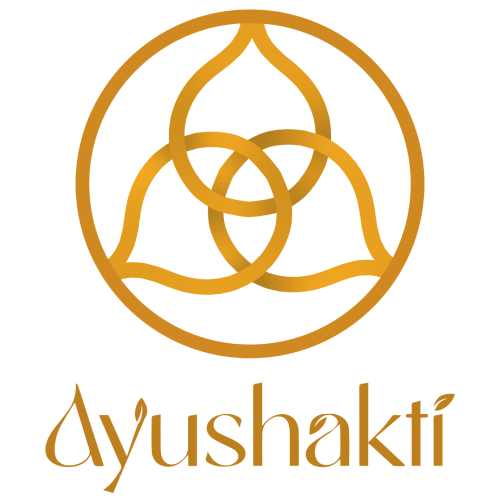
Low Vitamin D? Here’s How to Fix It Naturally
Share
Vitamin D is often called the “sunshine vitamin”, and for a good reason — your body produces it when your skin is exposed to sunlight. But in today’s indoor lifestyle, where many of us spend long hours in offices or in front of screens, Vitamin D deficiency has become increasingly common.
Low Vitamin D can affect your bones, mood, immunity, and energy levels. From an Ayurvedic perspective, it’s not just about getting sunlight; it’s about balancing your doshas, improving Agni (digestive fire), and ensuring proper absorption of nutrients.
In this detailed guide, we’ll explore both modern medical and Ayurvedic approaches to restore and maintain healthy Vitamin D levels — naturally and safely.
Understanding Vitamin D: What It Does for Your Body
Vitamin D is a fat-soluble nutrient essential for:
- Calcium absorption, promoting strong bones and teeth
- Muscle function, reducing fatigue and weakness
- Immune system support, helping the body fight infections
- Mood regulation, linked to serotonin and mental well-being
From a general medical standpoint, Vitamin D helps prevent conditions like osteoporosis, muscle weakness, and fatigue.
In Ayurveda, Vitamin D is seen as vital to maintaining Ojas (vital energy) and Dhatu (tissue health). A deficiency weakens the Asthi Dhatu (bone tissue) and leads to symptoms like fatigue, bone pain, low immunity, and emotional imbalance.
Causes of Low Vitamin D Levels
1. Lack of Sunlight Exposure
The most common cause is insufficient sunlight exposure. Urban living, pollution, and sunscreen use all reduce the skin’s ability to synthesize Vitamin D.
Ayurveda’s View:
According to Ayurveda, sunlight (Surya) is a source of Agni (energy) and Prana (life force). Minimal exposure disturbs Vata and Kapha doshas, leading to sluggish metabolism and fatigue.
2. Poor Diet
Most people don’t get enough Vitamin D-rich foods in their diet.
Ayurvedic Insight:
A weak digestive fire (Mandagni) leads to poor absorption of nutrients. Even if you consume Vitamin D foods, your body may not utilize them efficiently.
3. Digestive Issues
Malabsorption disorders and poor gut health affect Vitamin D levels.
Ayurveda explains that imbalances in Pitta dosha or excessive Ama (toxins) in the intestines block nutrient assimilation.
4. Age and Skin Pigmentation
Older adults and those with darker skin produce less Vitamin D from sunlight.
In Ayurveda, this is seen as a natural decline in Ojas and Agni, requiring rejuvenating therapies to restore vitality.
Symptoms of Vitamin D Deficiency
You may have low Vitamin D levels if you experience:
- Persistent fatigue or tiredness
- Weak bones or frequent pain in joints
- Low mood, anxiety, or depression
- Weak immunity and frequent infections
- Muscle cramps or weakness
- Hair loss or brittle nails
In Ayurveda, these signs indicate low Ojas, weak Asthi Dhatu, and Vata imbalance.
General Medical Ways to Improve Vitamin D Levels
1. Sun Exposure — The Natural Way
Spend 15–30 minutes in early morning sunlight (between 7–9 AM). Allow sunlight to fall on your face, arms, and legs without sunscreen for short durations.
- Avoid harsh afternoon sun to prevent skin damage.
- Ensure you expose at least 35–40% of your body surface for optimal synthesis.
2. Vitamin D-Rich Foods
Include the following in your diet:
- Fortified milk, orange juice, and plant-based beverages
- Mushrooms exposed to sunlight
- Egg yolks
- Cheese and butter (in moderation)
3. Maintain a Healthy Weight
Vitamin D is stored in fat cells; being overweight can trap it, reducing bioavailability. Regular exercise improves utilization.
4. Gut Health
A healthy gut supports nutrient absorption. Include probiotics like curd, fermented vegetables, or buttermilk.
Ayurvedic Approach to Boost Vitamin D Levels Naturally
Ayurveda believes in strengthening digestion, cleansing toxins, and balancing doshas to promote natural nutrient absorption.
1. Balance Your Doshas
- Vata Imbalance: Causes fatigue and weak bone health.
Remedy: Include warm, cooked foods, sesame oil massage, and grounding herbs like Ashwagandha.
- Pitta Imbalance: Leads to inflammation and poor nutrient assimilation.
Remedy: Consume cooling foods like ghee, aloe vera, and coconut water.
- Kapha Imbalance: Causes sluggish metabolism.
Remedy: Use herbs like Trikatu (ginger, black pepper, and long pepper) to improve digestion.
2. Improve Agni (Digestive Fire)
A strong digestive system ensures that all nutrients, including Vitamin D, are absorbed properly.
- Sip warm water with lemon in the morning.
- Take ginger and black pepper before meals to stimulate Agni.
- Avoid cold or heavy foods that dull digestion.
3. Ayurvedic Herbs for Strong Bones and Vitality
- Ashwagandha – Strengthens bones and boosts energy.
- Shatavari – Nourishes tissues and supports hormone balance.
- Guduchi (Giloy) – Enhances immunity and absorption.
- Triphala – Detoxifies the gut and improves digestion.
- Guggul – Aids in fat metabolism and detoxification.
4. Vitamin D–Supporting Ayurvedic Therapies
Abhyanga (Oil Massage)
Daily self-massage with warm sesame or coconut oil improves circulation, enhances absorption, and balances Vata.
Suryanamaskar (Sun Salutation)
Practicing yoga under morning sunlight not only helps absorb Vitamin D but also stimulates metabolism and circulation.
Panchakarma Detox
A guided detox under Ayurvedic supervision eliminates Ama and improves overall absorption of vital nutrients.
Rasayana Therapy
Rejuvenation therapy using herbal formulations and diet to restore Ojas and strengthen Asthi Dhatu.
Dietary Recommendations in Ayurveda for Vitamin D Deficiency
Include:
- Ghee – Nourishes the body and aids absorption of fat-soluble vitamins.
- Sesame seeds – Rich in calcium and good fats.
- Amla (Indian gooseberry) – A natural antioxidant that enhances absorption and strengthens immunity.
- Leafy greens and millets – Provide minerals essential for bone strength.
- Coconut water – Rehydrates and cools the body.
Avoid:
- Processed and fried foods
- Excessive caffeine or alcohol
- Cold drinks and packaged snacks
- Daytime sleep, which slows metabolism
Yoga and Lifestyle Practices for Vitamin D Absorption
1. Surya Namaskar
Twelve yoga postures performed facing the sun — balances hormones, improves metabolism, and enhances sunlight absorption.
2. Pranayama (Breathing Exercises)
Deep breathing improves oxygen flow and detoxifies cells. Practice Kapalabhati and Anulom Vilom daily.
3. Spend Time Outdoors
Walking barefoot on grass (known as Earthing) helps connect your body to natural energy and Prana.
4. Maintain a Regular Sleep Cycle
Sleep before 10 PM to support hormonal balance and optimal vitamin utilization.
How Vitamin D Impacts Skin and Hair
Low Vitamin D levels can lead to dry skin, premature aging, and hair thinning.
Vitamin D supports cell regeneration and collagen production.
Ayurvedic oils like Bhringraj oil or Amla oil can help nourish the scalp and improve hair health when used regularly under sunlight exposure.
Ayurvedic Daily Routine for Vitamin D Support
 When to Seek Medical Guidance
When to Seek Medical Guidance
If symptoms persist despite sunlight and Ayurvedic care, consult an expert.
Ayurveda recommends individualized treatment based on Prakriti (body constitution) and Vikriti (imbalance).
A health professional may suggest a diagnostic test to measure Vitamin D levels and guide lifestyle adjustments.
For regular health tips & updates visit Ayushakti’s Social Media Pages:
- Facebook – Ayushakti Ayurved | Facebook
- Instagram – Ayushakti Ayurved (@ayushakti)
- Pinterest – ayushaktiayurveda
Get all the updates about Ayushakti Ayurved on WhatsApp directly. Click here to Join our WhatsApp Channel
Ayushakti's mission is to help people in every way possible. Our Ayurvedic experts are available to give you a consultation either over the phone or through a video consultation. We recommend customised diets, home remedies, and detox therapies to help you recover from health problems. Book your consultation now!
If you would like to know the location or visit one of our centres, please click here: https://www.ayushakti.com/home/p/contact
For more information, write to us at info@ayushakti.com or call our toll-free numbers: 18002663001 (India) and +18002800906 (Global).
Blog Author: Dr. Ramchandra Konduskar
Expert Review: Dr Smita Pankaj Naram
Co-Founder, Ayushakti Ayurved Pvt Ltd
Disclaimer: This blog is for educational purposes only. Please consult an Ayurvedic practitioner before trying or consuming any medicines, home remedies or treatments mentioned in this blog. The information provided is not intended to diagnose, treat, cure, or prevent any disease.





